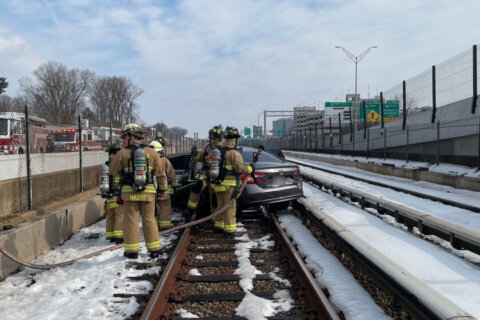While it has always been a crime to intentionally provide false information to law enforcement, a new law is now in place in Virginia that includes stronger penalties for calling in fake emergencies.
The law was passed by the General Assembly earlier this year, and took effect at the start of July.
“It is a significant change,” said Sgt. Jacob Pearce with Fairfax County Police. “The amount of response that’s created by fraudulent calls is tremendous.”
Previously, state law allowed for someone to be charged with a misdemeanor if they filed a false police report.
Under the new law, however, there is an additional misdemeanor for anyone who knowingly reports false information “that results in an emergency response.”
A person who calls in the fake threat could also be charged with a felony if the emergency response leads to someone being seriously injured or killed.
“A lot of these threats involve lies about an active shooter or an explosive device or something like that,” Pearce said. “There are lockdowns involved and the response involved is just massive.”
People convicted under the new law would also need to pay for the response that occurred.
“The bill authorizes any locality to provide by ordinance that a person convicted of such false emergency communication shall be liable for the reasonable expense in responding to such false emergency communication,” according to the legislation.
Many schools in the D.C. region and around the country have had to deal with fake emergency calls, also known as “swatting.”
“A young person might think of this as the modern version of pulling the fire alarm, but it’s really much more serious,” Pearce said. “Calling in these hoax threats or fake reports is not a joke.”
Hundreds of cases of swatting occur each year nationally, with some using caller ID spoofing to disguise their number. The goal is to get authorities, particularly a SWAT team, to respond to an address.
Such calls have proven dangerous and even outright deadly.
In 2017, a police officer in Wichita, Kansas, shot and killed 28-year-old Andrew Finch while responding to a hoax emergency call. The city later agreed to pay $5 million to settle a lawsuit, with the money going to Finch’s two children.
The hoax call that led to his death began as a feud between two online gamers.
The Associated Press contributed to this report.








